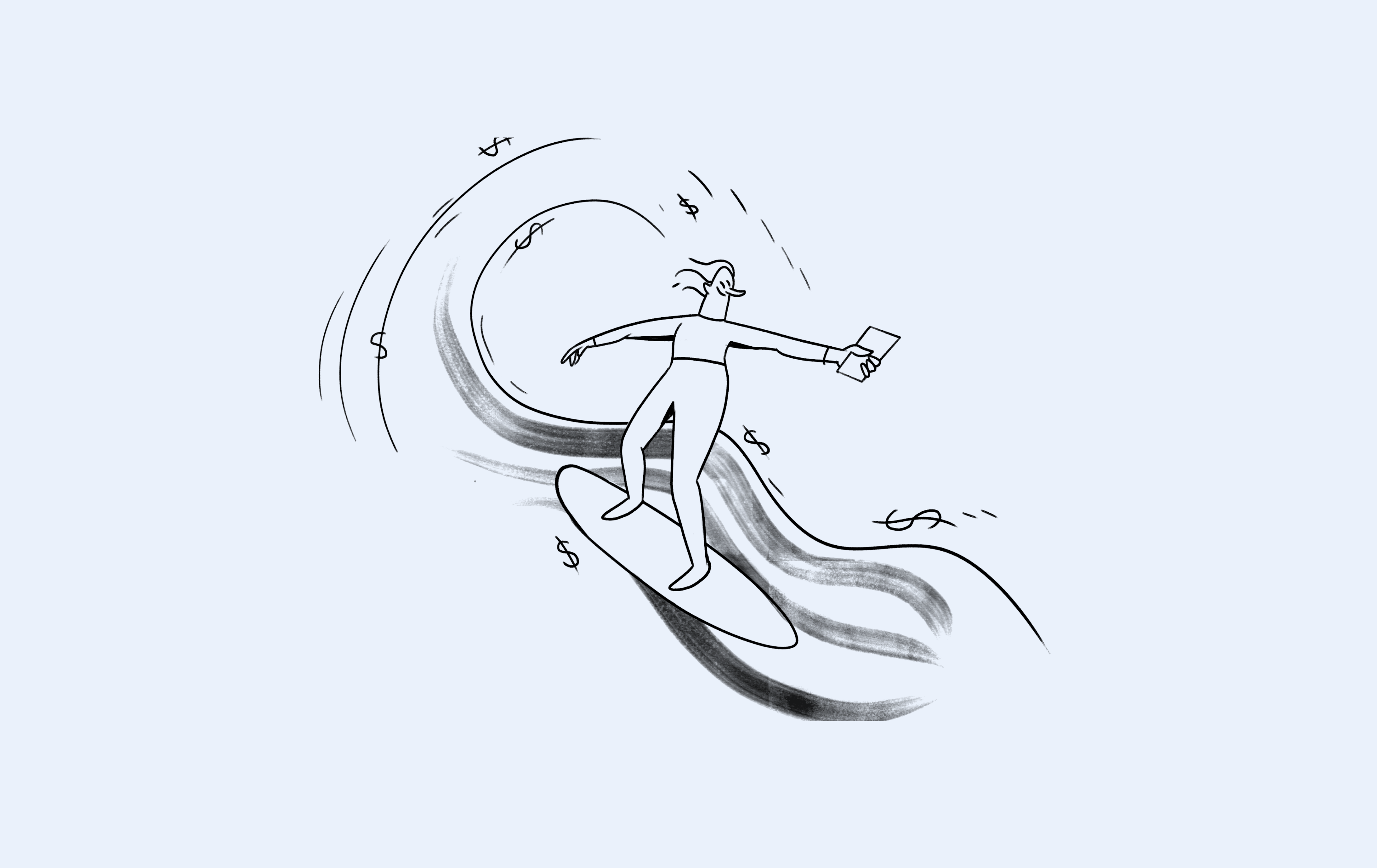What You’ll Learn:
- Why charging interest on overdue invoices benefits your business and your cash flow
- Step-by-step guidance on how to charge late fees on invoices effectively and professionally
- Tips to balance late-payment policies while maintaining strong client relationships
Late payments are more than a minor inconvenience; they disrupt cash flow, strain operations, and leave businesses scrambling to meet their own financial obligations.
Charging interest on overdue invoices is a proven strategy to protect your bottom line while encouraging clients to pay on time.
But how can you implement this approach effectively without straining client relationships?
Understanding how to charge interest on overdue invoices and ensuring compliance with best practices can result in more prompt payments and protect your business’s financial stability.
Why charge interest on overdue invoices?
Charging interest on late payments isn’t just about recouping money; it’s a strategic move to protect your business and encourage timely payments. Here’s why understanding how to charge interest on overdue invoices can make a significant difference.
Impact on cash flow
When payments are delayed, the ripple effects can harm your business operations. Late invoices affect your ability to pay employees, purchase inventory, or fund new projects. Knowing how to charge late fees on invoices acts as a safety net, compensating for the operational strain caused by overdue payments.
(Psst! If you’re not comfortable charging late fees, or need a more immediate cash flow fix, consider using Hopscotch Flow to get paid instantly. Unlock 90% of any outstanding invoice that qualifies for Flow immediately, no credit check or UCC filing required! Learn more here.)
Encourage prompt payments
Implementing interest fees on late payments sends a clear message to clients: timely payments are crucial. While most clients intend to pay on time, interest charges serve as a deterrent for those who might deprioritize your invoice when push comes to shove. By setting expectations about the consequences of late payments from day one, you can effectively encourage clients to meet payment deadlines.
Fair compensation
Every late payment costs your business time and resources. Charging interest ensures you’re compensated for the inconvenience while covering any additional expenses caused by the delay. Setting a reasonable interest rate for late payments not only helps offset these costs but also demonstrates professionalism. This isn’t about penalizing clients—it’s about protecting your business from financial instability.
Pros and cons of charging interest on overdue invoices
All those reasons to charge interest on late payments sound great, but hold your horses. It’s essential to weigh the benefits and potential drawbacks of charging interest on overdue invoices before you change your late payment policies.
Pros:
- Encourages prompt payment: Clients are less likely to delay payments when they know interest fees are involved.
- Offsets financial strain: The interest can help cover costs you incurred while waiting for payment.
- Establishes professionalism: It sets the expectation that your services and time are valuable, and there are consequences for violating your terms.
Cons:
- Client relationships: Overly strict late-payment policies might strain relationships with clients.
- Administrative burden: Managing interest charges adds complexity to your invoicing process.
- Legal considerations: Varying state laws may limit the interest rates you can charge.
Never get paid late again with Hopscotch Flow
Before you can charge interest
Charging interest on overdue invoices requires planning, transparency, and legal compliance. Here are the essential steps of what you’ll need to do.
Establish clear payment terms
- Contracts matter: Always include a clause about late fees or interest in your contracts. Clearly define the rate, when it will be applied, and any grace periods.
- Industry standards: Most businesses charge 1 to 1.5% per month as a reasonable interest rate for late payments. Be explicit about this in your terms.
Know the legal framework
- State laws vary widely regarding what constitutes a reasonable interest rate for late payments, so familiarize yourself with local regulations.
- Consult a legal professional to ensure your policies comply with the law and to protect your business from future disputes.
Transparent communication
Clients should never be surprised by an interest charge. Before adding fees, notify clients about the potential for charges if payments aren’t made on time. This upfront honesty builds trust and encourages payment compliance.
Step-by-step guide to charging interest on overdue invoices
Follow these steps so that everyone is on the same page and there are no surprises when you have to communicate about unpaid invoices.
Step 1: Define your interest rate and terms
- Decide on a fixed rate or percentage. Businesses commonly charge 1 to 1.5% per month on overdue invoices, though you should adjust this based on your industry and client base.
- Set a grace period, typically between 7 and 15 days, to give clients a final chance to pay before fees are applied.
- Remember, the goal is to encourage on-time payments—not to make money by imposing late fees.
Step 2: Update your invoicing process
- Use software that automates the calculation of late fees and interest charges. This ensures accuracy and reduces administrative workload.
- Include clear wording on the invoice to outline the interest charge, such as:
“A late fee of 1.5% per month will apply to unpaid balances after 30 days. Thank you for your prompt payment!”
Step 3: Communicate clearly
- Send reminders well before the due date to prompt payment.
- Notify clients as soon as an invoice becomes overdue, tactfully reminding them of potential interest charges. Use language that balances professionalism with empathy, like:
“We noticed your payment of [amount] is past due. To avoid late fees, please submit payment at your earliest convenience. Feel free to contact us if you have any questions or concerns.”
Step 4: Collect payments effectively
- Where reasonable, offer solutions like payment plans to help clients settle overdue balances without strain.
- Consider combining interest charges with early-payment discounts for other invoices to encourage future compliance.
Invoice with Hopscotch
Charging interest on overdue invoices is a helpful strategy, but the ultimate goal is to get paid on time. That’s where Hopscotch comes in. This platform simplifies invoicing, automates payment reminders, and makes it easy to track payments.
For urgent cash flow needs, Hopscotch Flow provides instant access to up to 80% of your outstanding receivables, with no hard credit check required. Access funds faster than net-30, completely privately and on your terms. Get approved for Flow and see your borrowing limit today.
Bret Lawrence
Writer
Bret Lawrence writes about invoicing and cash flow management at Hopscotch. Her previous roles include senior financial writer at Better Mortgage, where she covered lending and the home buying process. Her writing is not financial advice.


